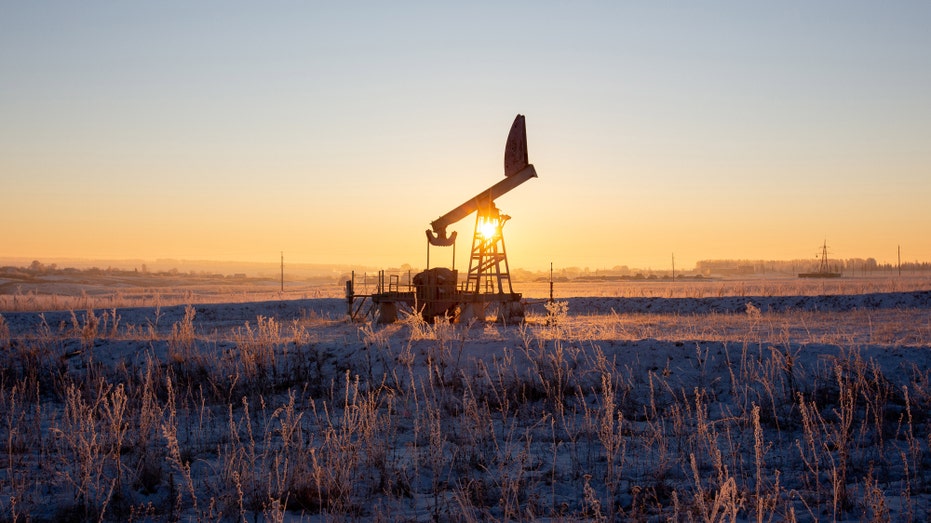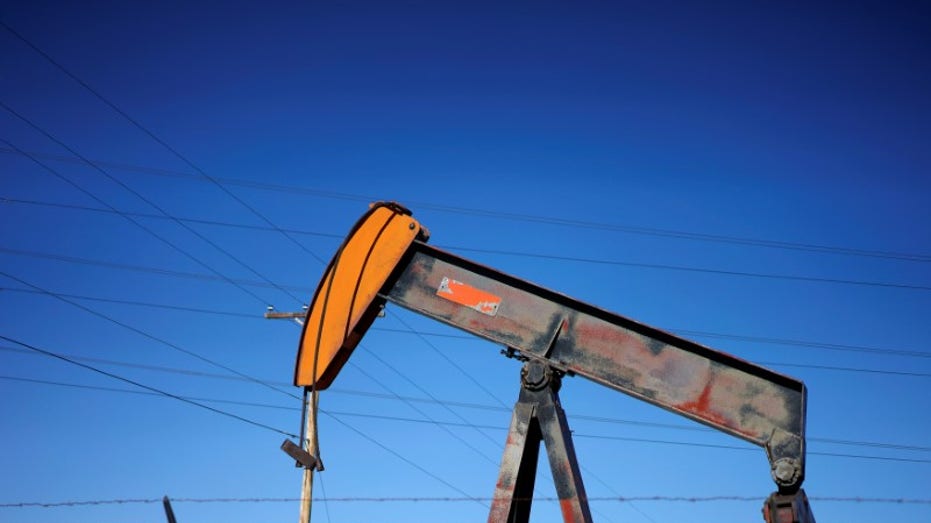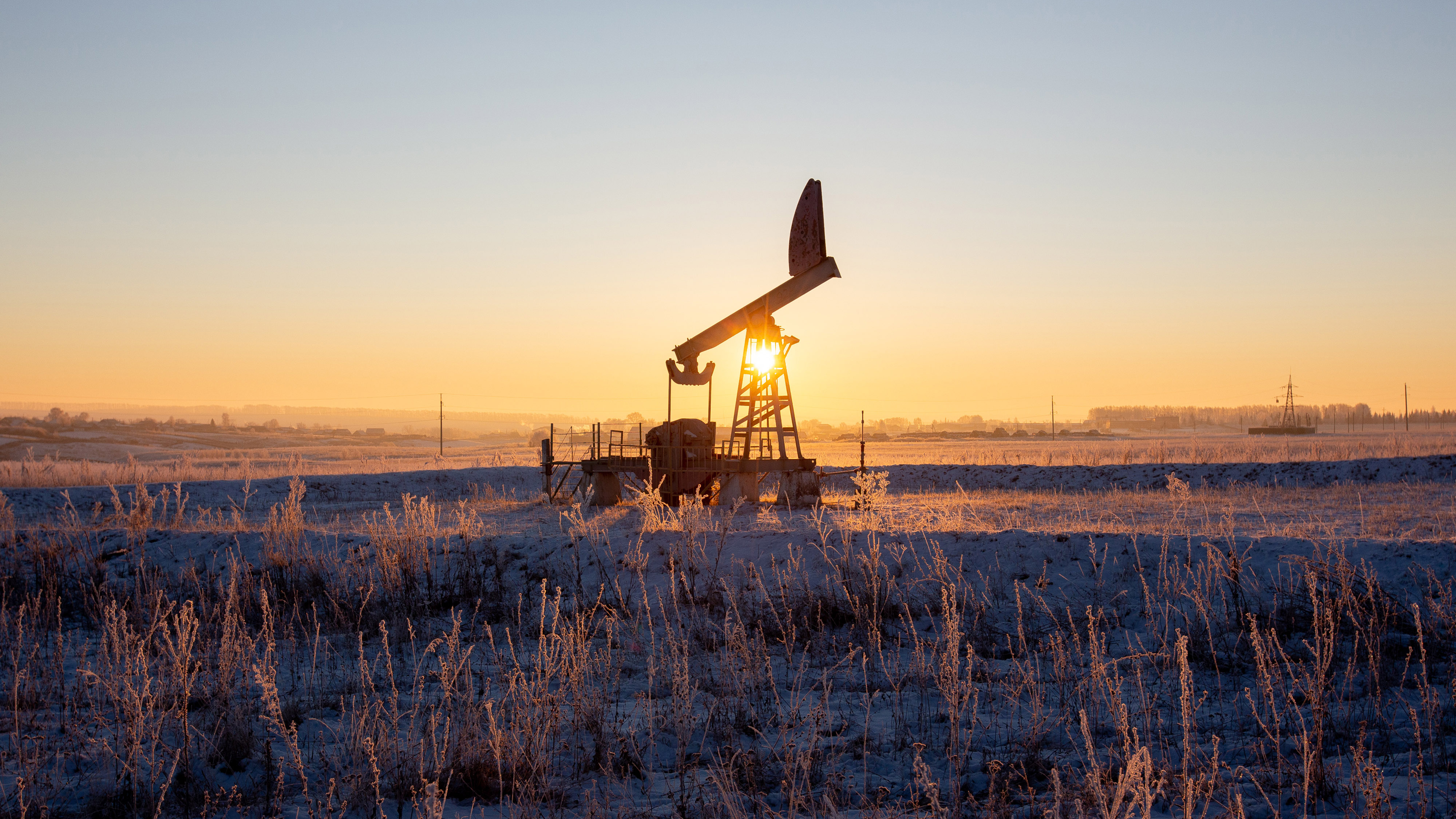OPEC+ rejects calls to increase production again as Arab oil producers say group should stick to agreement
US crude prices reached their highest level since 2014 this week
Fox Business Flash top headlines for February 11
Check out what's clicking on FoxBusiness.com.
Ministers of Arab oil-producing countries gathered in Saudi Arabia on Sunday, refusing pressure for OPEC+ to increase production again amid coronavirus pandemic recovery efforts and as a potential war looms in Europe.
The Organization of Petroleum Exporting Countries and its allies, led by Russia, on Feb. 2 agreed to keep moderate rises in oil production, citing uncertainty. They've been sticking to their plan to gradually roll back output cuts, adding 400,000 barrels a day each month until September this year.
On Sunday, Saudi energy minister Prince Abdulaziz bin Salman told an industry conference in Riyadh how the pandemic and recovery efforts have "taught us the value of caution," Reuters reported.
OIL'S ‘WAR PREMIUM’ AS RUSSIA-UKRAINE TANGLE

An oil pumping jack, also known as a "nodding donkey," in an oilfield near Dyurtyuli in the Republic of Bashkortostan, Russia. (Andrey Rudakov/Bloomberg via Getty Images / Getty Images)
"Caution, a word that I know some people hate me for, but... I will continue being cautious, and (mindful of) the need to retain flexibility in our strategy and adopt a long-term perspective," Prince Abdulaziz said.
OPEC+ has been under pressure by consumers to increase production of crude amid surging prices and fears over possible supply disruptions due to tensions between Russia and Ukraine. Russia is a huge energy player in Europe and is increasing its energy relationship with China through an imminent agreement to sell 100 million tons of coal to its communist neighbor.
U.S. crude prices stand at $91 a barrel after increasing around 40% since Dec. 1, Reuters reported. Earlier this week, they reached their highest level since 2014.

An oil well pump jack an oil field supply yard near Denver, Colorado, Feb. 2, 2015. (REUTERS/Rick Wilking/File Photo)
Instead of pumping more oil, the group called for sticking with monthly increases. Energy ministers of Iraq, Kuwait and the United Arab Emirates (UAE), at the conference, said the group should stick to its current agreement to keep the market balanced and avoid any surplus, Bloomberg reported.
"For the benefit of the whole energy market, OPEC+ should sustain the current agreement and any dramatic change could cause an imbalance," Iraq Oil Minister Ihsan Abdul Jabbar said.
"We are on a journey to attend to the market by gradually increasing production, and we think that this plan is attending to the supply and demand," added Suhail Al-Mazrouei, the UAE’s energy minister, according to Bloomberg. "I think our plan is working, and I don’t think that the market is hugely under-supplied."
In the U.S., producers see the Biden administration as hostile to domestic production, and he has repeatedly asked OPEC+ to increase production, without success. During his presidency, President Biden also signed orders that killed the Keystone XL pipeline and paused leasing on federal lands, drawing lawsuits from energy-producing states.

President Biden delivers a speech on infrastructure spending at Carpenters Pittsburgh Training Center, Wednesday, March 31, 2021, in Pittsburgh. (AP Photo/Evan Vucci / AP Newsroom)
Jason Modglin, president of the Texas Alliance of Energy Producers, told Fox News that Texas is producing while other states – like New Mexico and Utah -- have curbed production because they have more federal land on which oil and natural gas are produced.
Environmental groups and critics have argued those federal lands needed to be protected.
CLICK HERE TO READ MORE ON FOX BUSINESS
Modglin also argued that very few OPEC+ members have hit their monthly production targets. He suggested that's "unlikely to change anytime soon."
"Uncertainty in Ukraine and the prospects of Iranian oil on the wider market will keep foreign producers cautious to ramp up to help lower gas prices this summer," Modglin said. "Texas and the Permian Basin are putting out record production, but the rest of the U.S. remains constrained by Washington halting leases and pipelines."




















